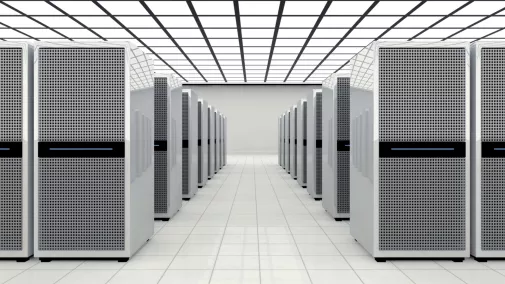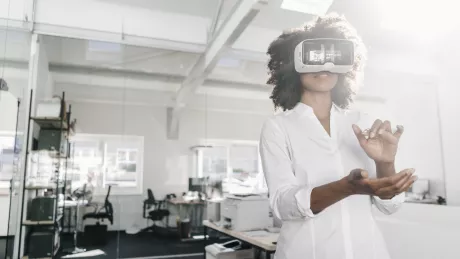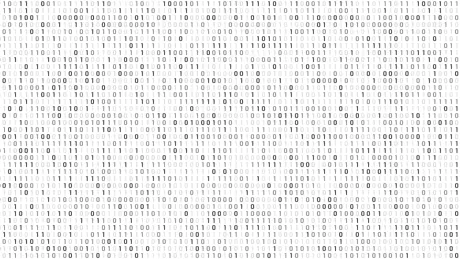
Quantum computing – new rules thanks to supercomputers
published on 15.03.2022
Quantum computers will shape the digital future, bringing with them unprecedented computational possibilities, but also new security risks. In order to understand this new generation of computers and to put them to sensible use, Bundesdruckerei GmbH is already conducting extensive research into the related potential and risks. Dr Andreas Wilke, Senior Innovation Developer at Bundesdruckerei GmbH and an expert in quantum computing, provides insights into what could await us in the era of quantum computing.
The future is getting closer
Until recently, they were considered miracle machines from the distant future. But their use is becoming more and more realistic. The big US tech companies are already racing to build the first functioning full-fledged quantum computer. Bundesdruckerei GmbH is exploring the possible use of quantum technology in various projects and wants to find out what new security mechanisms might be needed for these supercomputers. In an interview, Mr Wilke explains how quantum computers could change our lives, and how Bundesdruckerei is already helping to shape the future.
Mr Wilke, what makes quantum computers so significantly different from their classical predecessors?
With these computers, everything centres around a quantum effect, i.e., the so-called superposition in combination with smart parallel information processing on the qubits of the quantum computer. Roughly speaking, superposition means that parallel computing is possible. This is precisely what distinguishes quantum computers from conventional computers that process information sequentially, one at a time, like pearls being strung on a necklace. A quantum computer, on the other hand, can calculate all values parallel, which would mean an exponential increase in performance.
When could quantum computers become a reality?
IBM has published a roadmap showing that quantum computers could be a reality in about eight years from now. Here in Germany, the Federal Office for Information Security (BSI) expects that a cryptographically relevant quantum computer capable of realizing the Shor algorithm will have been developed by 2030. A more reliable estimate is currently impossible because many technical innovations are still needed. But the problem is not so much of a physical nature as we don’t have to reinvent physics for quantum computing. The challenge lies more in the realization of very complex systems. They are what will make it possible for people to use this technology for their own purposes – both positive and negative.
What exactly will quantum computers change?
Certain mathematical problems, for instance, can be solved with quantum systems. Take the logistics industry, for example, where a delivery truck is to deliver goods in a total of ten cities and now the task is to calculate the most efficient route. Quantum computers can solve problems like these much better than their conventional counterparts. What’s more, we are researching the energy efficiency of calculation processes. Here, too, we expect quantum computers to offer significant advantages compared to today’s computers when it comes to certain types of information processing. Data analysis and evaluation, however, is only one of two major use cases that we are working on in the field of quantum computing. The second use case focuses on the potential downsides of quantum computers.
Everything runs more efficiently, more accurately and even saves energy. How can a system like that have downsides?
Over 25 years ago, Peter Shor, an ingenious mathematician, developed a method that already today could actually destroy all current asymmetric cryptography methods on the Internet – by using a quantum computer. In other words, the only thing currently protecting communication on the Internet is that we do not have a quantum computer. But the IBM roadmap already suggests that we won't have to wait too much longer for it to arrive.
You mean, you are looking into the question of how communication can still be encrypted in such a way that it would also be safe from quantum computers ...
That is exactly what we are working on in the field of so-called post-quantum cryptography. After all, even in the age of supercomputers, it is clear that many of our conventional systems will still be around. So, we need to find quantum-resistant encryption methods – especially for sensitive personal data. That is why we are participating, for instance, in the PoQuID project[https://www.bundesdruckerei.de/de/innovation-hub/technologien-fuer-die-aera-der-quantencomputer] in which we working with other renowned partners to explore promising encryption components for ID systems and test the extent to which these are compatible with conventional structures.
Bundesdruckerei GmbH is also collaborating with other partners from academia, industry and consulting in the funded PlanQK project. What is this project about?
At PlanQK, we want to explore how quantum computers can be used for AI applications. This begins with the question of the form in which data needs to flow into the quantum computer, so that AI and machine learning methods on this computer can also use the machine’s computational advantages. In the end, we want to implement algorithms that we will also discuss with all the research partners in the PlanQK framework to guarantee maximum learning success. The project not only creates a strong network, but also provides enormous know-how, both of which may become very important for Bundesdruckerei in the future, especially when it comes to integrating quantum analytics and quantum AI into our security solutions in the future.



